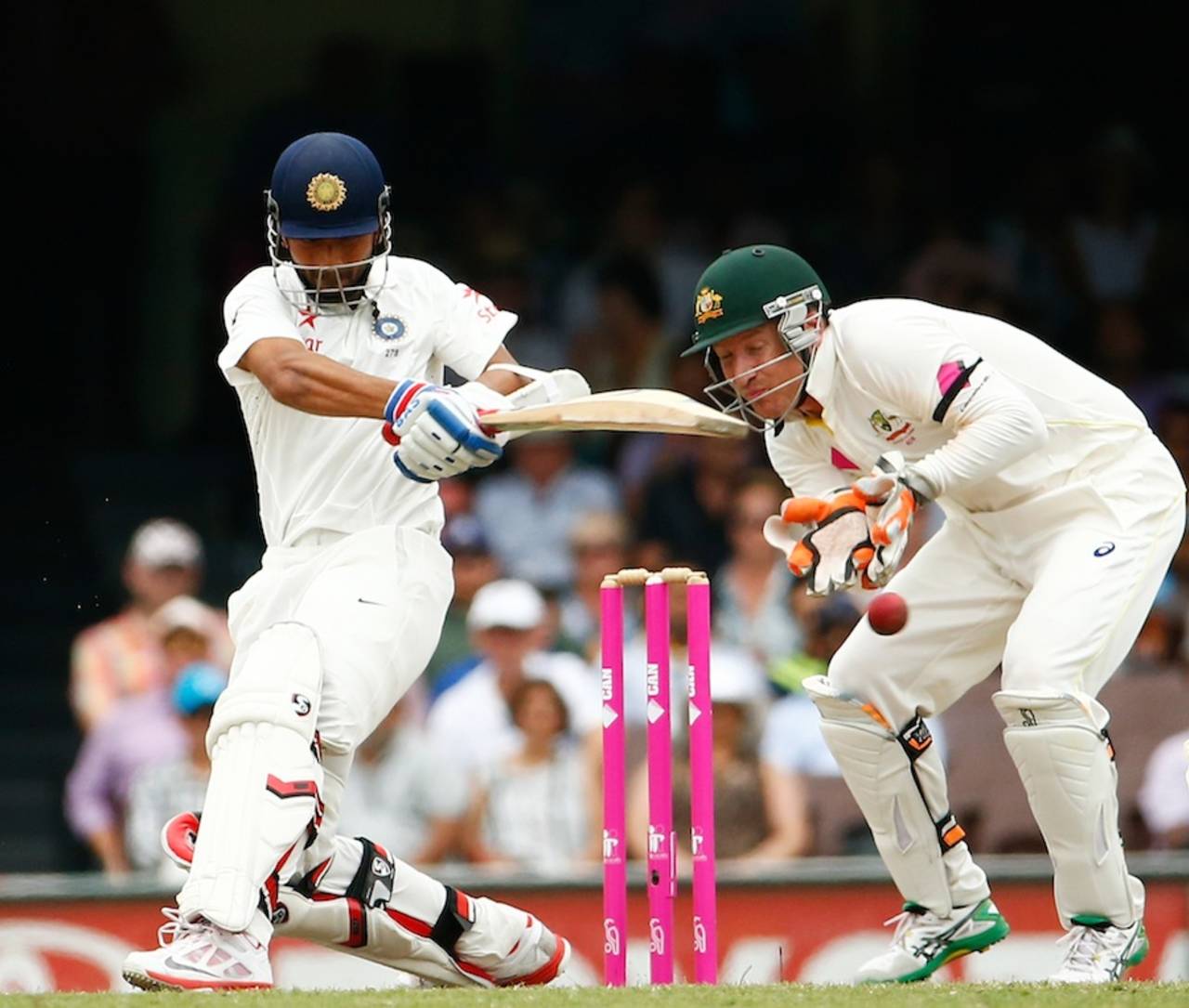There were just two-and-a-half hours of the final session to survive, but anyone who has followed Indian cricket for a decent length of time expected the worst. There is a lot of history with this team. They lost the
Durban Test similarly. This whole Test series has been replete with them falling beyond repair through one bad session. There was a sense of the inevitable when M Vijay fell, followed by Virat Kohli and Suresh Raina. Five wickets were lost for 39 runs, and the same old sick feeling of not being able to arrest the negative momentum must have gone around in the Indian dressing room. It wasn't a bad time for two of the coolest and most understated heads to come together.
Ajinkya Rahane needed evidence he can save matches. In the last week of 2013, he tried and tried to save the Durban Test, but was left alone. In the
last week of 2014 he left the job half-finished, and would have been thankful for the former captain MS Dhoni's calm head. Now it was down to him, and some support from
Bhuvneshwar Kumar. Bhuvneshwar had had one of his more ordinary Tests. His bowling had been ordinary, and his low pace had raised questions over his match fitness. The two came in with more than 12 overs to bat out, and with no resistance expected from ten and jack.
It was an education to watch Rahane take charge of the situation. If you look from outside, it never felt like he was in charge. He wasn't going on chatting to the lesser batsman. He didn't make a big show of trying to farm the strike. Still he faced 39 of the 69 balls the partnership went unconquered for. Between balls he collected his thoughts. Sometimes he closed his eyes for a moment to erase the previous ball and then concentrate afresh.
Rahane has shown in this series that he likes to keep scoring runs. Not scoring runs is new business. The vultures are all around you. You block, block, block, and then boom! One flies up and there is a higher chance of its getting caught. On and on the two defended. A shooter Bhuvneshwar kept out. Rahane swayed out of bouncers. A fourth-ball single here, a fifth-ball single there, and suddenly Australia began to get impatient. It was important that Rahane trusted Bhuvneshwar, and didn't need to get impatient in search of a single towards the end of the over.
Towards the end, there was more tension in the Indian dressing room than out in the middle. Every dot ball was being cheered by Virat Kohli and the rest of the team, including the bowling coach and medical staff. Kohli must be one of the players immensely satisfied with a wingman such as Rahane. When he was in a confrontation in Melbourne, Rahane surprised him by deliberately taking Mitchell Johnson on, which took some heat off Kohli. Here Rahane showed a completely different aspect of his game. If, under high pressure, you can defend and defend for 126 minutes, playing just one false stroke, there is a good chance it won't be tense out in the middle.
"It was a feeling where you have forced the opposition to earn their victory," Kohli said of watching Rahane and Bhuvneshwar bat. "If they are that good for five days. We aren't throwing in the towel or getting beaten in four days. We pulled them till the end on three occasions on this series, two were losses and one was a draw, which could have gone either way. I was only sitting there and thinking if the series would have been one-all how much more pleasing those last moments would have felt."
In the end it was just 69 balls on a pitch where the average partnership has been 89 balls long, but India needed someone to stand up and fight the momentum during a bad session. One session resulting in a loss can be extremely disheartening, and if it keeps happening too often you can lose all faith in your ability. Vijay had worked hard all day, but while entertaining thoughts of a win he played a poor shot. Memories of Adelaide would have come rushing back. All through the series India have been talking about that one session every match where they have slid into quicksand. This time they had something to hold on to.
